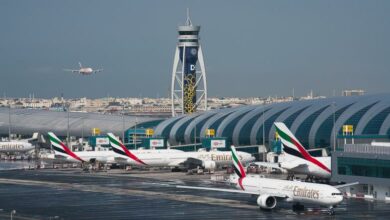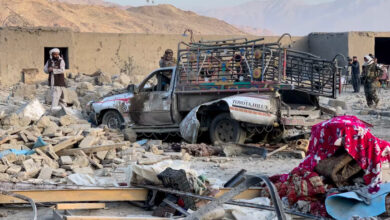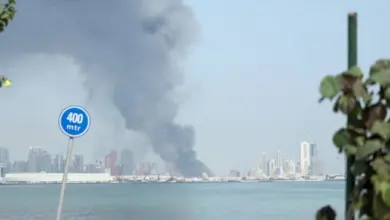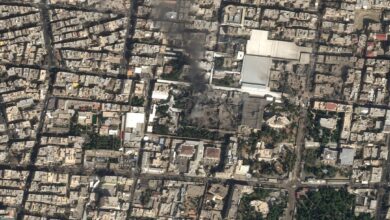
The Saudi-led coalition fighting rebels in Yemen has pledged to reopen the country’s main airport, as well as two main ports. The blockade was imposed earlier this month in response to a missile fired at Riyadh.
Yemen’s largest airport in the capital of Sanaa will reopen to UN aircraft, while the Red Sea port of Hodeida will be able to once again receive urgent humanitarian aid, the Saudi-led coalition said on Wednesday.
In a statement, coalition officials said that it would reopen the ports and airport to receive “urgent humanitarian and relief materials” starting midday on Thursday (0900 UTC).
Farhan Haq, deputy spokesman at the United Nations, also indicated that the blockade on Yemen’s other major port, Salef, would also be lifted.
UN officials welcomed the move, albeit cautiously, as it was not clear whether humanitarian missions into Yemen would be allowed to return to pre-blockade levels. The reintroduction of commercial traffic to Yemen’s ports was also uncertain.
“We’re monitoring these developments,” Haq told reporters in New York. “If that were to happen that would be a very welcome and critically important development. We made clear the tremendous amount of needs on the ground.”
Blockade on Yemen could lead to ‘largest famine in decades’
The UN warned that millions of people in Yemen were at immediate risk by the blockade on food aid and fuel. Some 7 million people are estimated to rely on food aid and 4 million on fuel needed for pumping clean water.
Shortly after the closure, UN aid chief Mark Lowcock warned that the blockade could spark the largest famine the world has seen for many decades, with millions of victims.
Aid group Save the Children welcomed the coalition’s announcement but warned that it was “nowhere near enough to avert a potential famine in Yemen.”
“Humanitarian relief only provides a small portion of the essential goods needed in Yemen — commercial supplies are critical to feed the population and keep basic services running,” it said.
Widespread suffering
The Saudi-led coalition imposed the blockade on Yemen in response to a missile assault targeting the Saudi capital of Riyadh. The missile was shot down, but it was the farthest a projectile fired by Yemen’s Shiite rebels, also known as the Houthis, had travelled into the kingdom.
In response, the coalition ordered all ships to leave the ports at Hodeida and Salef. The two ports have served as the only lifeline for northern Yemen, where most of the country’s 27 million people live.
Saudi Arabia said the move was intended to stop the flow of arms to the Houthis from Iran, although Iran has denied supplying weapons to the rebel forces.
The Saudi-led coalition has laid siege to Yemen since Houthi rebels seized parts of the country in 2015. The rebels’ capture of the capital Sanaa forced Saudi-allied President Abed-Rabbo Mansour Hadi to flee.
Almost 9,000 people have since been killed, but millions face the risk of a deadly cholera epidemic and stand on the brink of famine.




